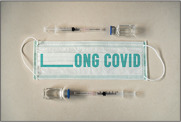💡 As the world grapples with the aftermath of the COVID-19 pandemic, a new challenge has surfaced in the form of Post-Acute COVID-19 Syndrome (PACS), commonly known as long COVID. PACS is characterized by a complex clinical presentation involving persistent cardiopulmonary, gastrointestinal, and neuropsychiatric symptoms, coupled with profound fatigue, significantly impacting the quality of life. With an estimated 65 million individuals worldwide affected by PACS, there is an urgent need for effective treatment options.
📍 Gut Microbiome and Long COVID
Emerging evidence suggests a connection between the gut microbiome and the pathophysiology of long COVID, highlighting disruptions in microbial balance, termed gut dysbiosis, in affected individuals. Given the well-established role of the gut microbiome in immune modulation, this association becomes crucial, especially as prolonged symptoms of PACS have been linked to a dysregulated immune response post-infection.
📍 Role of Probiotics and Synbiotics
Several studies indicate that probiotics, specifically strains like 𝘓𝘢𝘤𝘵𝘰𝘣𝘢𝘤𝘪𝘭𝘭𝘶𝘴 𝘢𝘯𝘥 𝘉𝘪𝘧𝘪𝘥𝘰𝘣𝘢𝘤𝘵𝘦𝘳𝘪𝘶𝘮, can enhance gut health, modulate inflammation, and improve immune function. In the context of COVID-19, these effects are particularly promising, raising the possibility of probiotics aiding in the recovery from acute viral infection. The concept of synbiotics, combining probiotics and prebiotics, emerges as a more comprehensive approach to address the multifactorial nature of PACS.
📍 Study Overview: SIM01 Synbiotic Therapy
In a landmark study published in The Lancet Infectious Diseases, Raphaela Lau and colleagues conducted the first randomized, double-blind, placebo-controlled trial to investigate the therapeutic effects of gut modulation with SIM01 in patients with PACS. SIM01, a novel synbiotic therapy, combines selected strains of 𝘉𝘪𝘧𝘪𝘥𝘰𝘣𝘢𝘤𝘵𝘦𝘳𝘪𝘶𝘮 (𝘦.𝘨., 𝘉. 𝘢𝘥𝘰𝘭𝘦𝘴𝘤𝘦𝘯𝘵𝘪𝘴, 𝘉. 𝘣𝘪𝘧𝘪𝘥𝘶𝘮, 𝘉. 𝘭𝘰𝘯𝘨𝘶𝘮) with specific prebiotics (e.g., galacto-oligosaccharides, xylo-oligosaccharides, resistant dextrin).
📍 Key Findings
The study included 463 participants with PACS, randomized to receive either oral SIM01 or placebo twice daily for 6 months. The primary outcome was a reduction in symptom severity measured by the PACS questionnaire (PACSQ-14).
📍 Positive Outcomes:
Participants receiving SIM01 showed higher rates of alleviation in fatigue, general unwellness, memory loss, gastrointestinal upset, and difficulty in concentration.
Faecal metagenomic analysis revealed an increase in gut microbiome diversity and enrichment of short-chain fatty acid metabolism pathways in SIM01 recipients.
📍 Safety:
Adverse event rates were similar between the treatment and placebo groups, with no adverse events related to study interventions.
📍 The study suggests that synbiotic preparations like SIM01 offer a safe and promising treatment for PACS. Larger, multicenter studies are essential to validate these findings and explore long-term benefits.
This study provides a foundational step towards a potential new treatment framework in the management of PACS, opening avenues for further research into gut microbiome modulation as a therapeutic strategy for post-COVID syndromes.
Link to the article : http://tinyurl.com/2bnpkvyu
